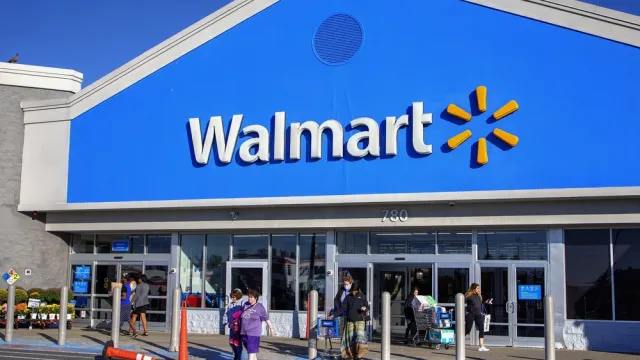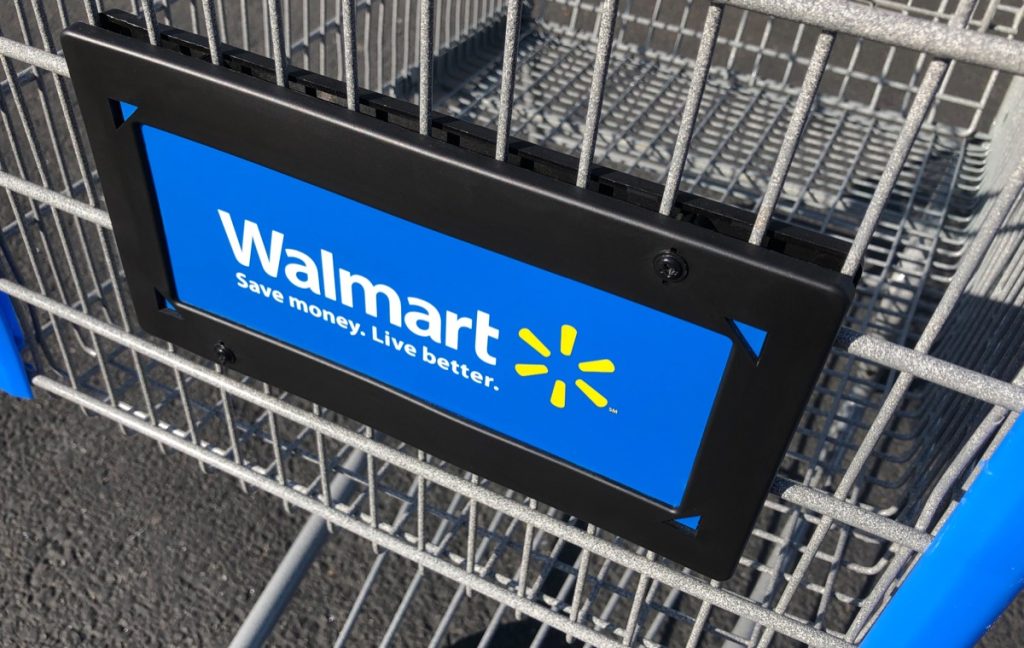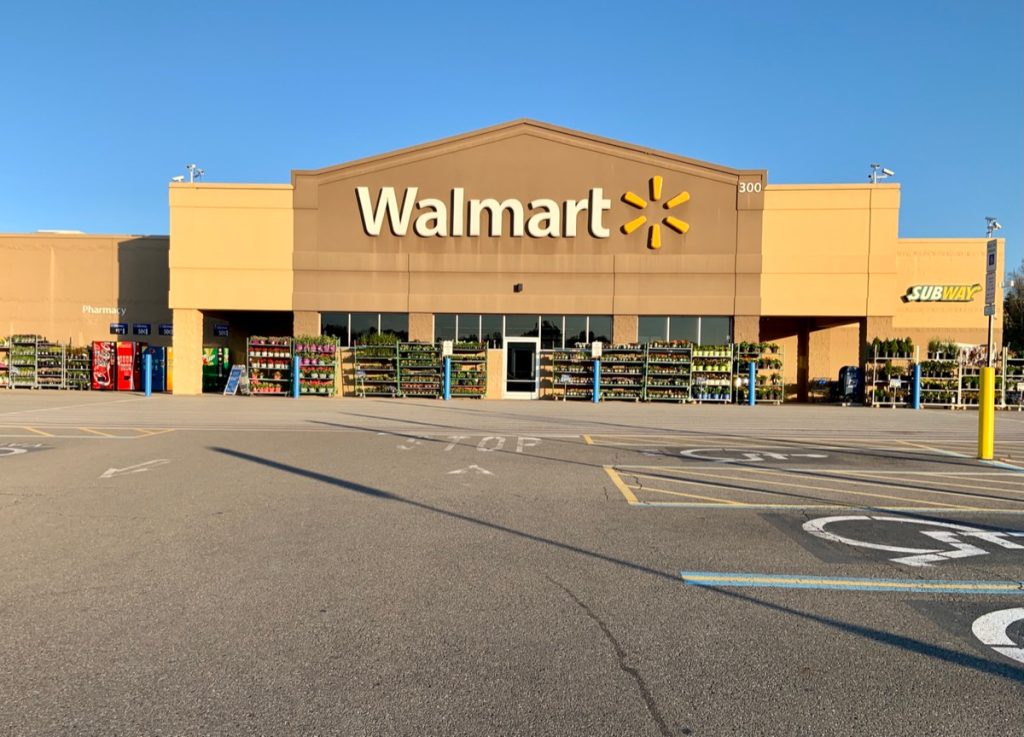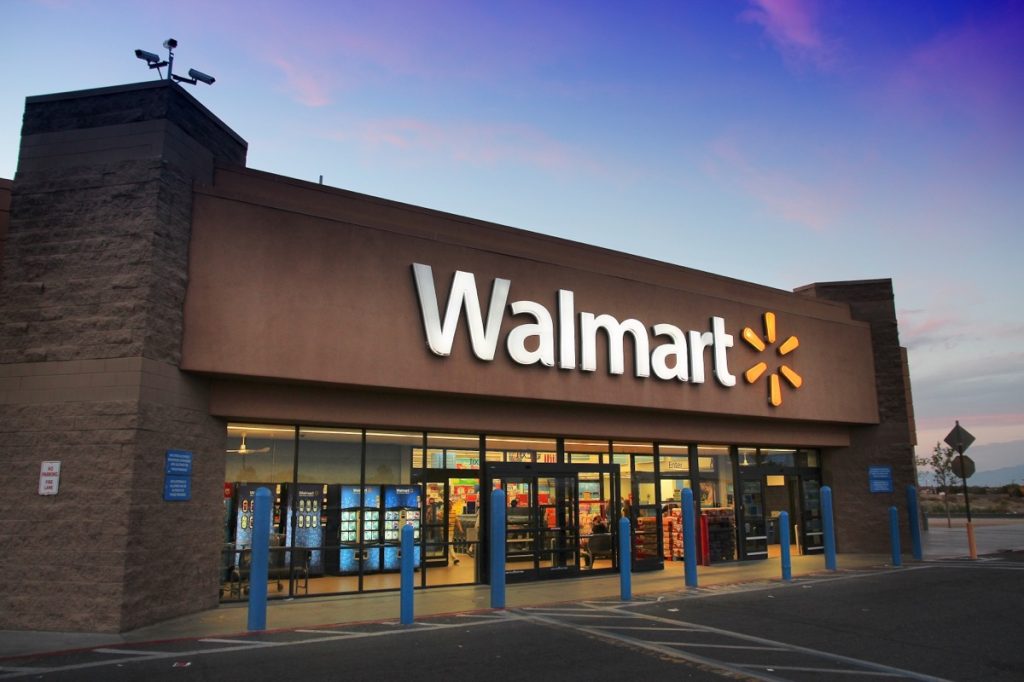Walmart’s CEO Just Threatened More Store Closures and Higher Prices

If you’re like millions of shoppers, there’s a good chance you make your way to Walmart to pick up everything from quick groceries to larger ticket items like electronics. Many rely on the store for its convenience and reliably low prices, making it the go-to for essentials even before inflation became a growing issue. However, the retailer still faces plenty of its own problems that it must address to stay profitable—which can involve shuttering some locations. And now, Walmart’s CEO has threatened that more store closures and higher prices could be coming down the line. Read on to read why the company is struggling right now.
READ THIS NEXT: Walmart Is Under Fire for Doing This to Shoppers—Look for These 3 Words.
Walmart has closed stores recently but is handling inflation differently than other retailers.

It’s no secret that the retail industry has struggled in the past few years in the face of changing business patterns and unforeseen emergencies. As if the difficult recovery from the COVID-19 pandemic weren’t bad enough, many are now coping with the stresses of inflation or labor shortages that lead to store closures. But even as the nation’s largest retailer, Walmart has been fortunate enough to avoid many of the same issues.
Earlier this year, executives for the company spoke about how its strategy of everyday low prices and use of “rollback” sale signs could help keep customers coming back in the face of rising prices and tighter budgets. “We use rollbacks to communicate not only the reality of prices are coming down at some places, but the emotion or perception we want customers to have about us,” Doug McMillon, CEO of Walmart, told analysts during a post-earnings conference call in February, per CNN.
Of course, the company hasn’t been entirely immune to current economic realities. It’s shuttered more than 160 stores across 27 states in the past six years, according to Rather-Be-Shopping.com. According to the company, the restructuring can often come down to keeping an eye on the bottom line, such as in the case of a location shuttering in Pittsburgh in late October.
“This decision was not made lightly and was reached only after a thorough review process,” Walmart spokesperson Felicia McCranie told CBS News. “Our decision is based on several factors, including historic and current financial performance, and is in line with the threshold that guides our strategy to close underperforming locations.” But now, the company’s top brass is warning more changes could be coming.
Walmart’s CEO just warned that more store closures and higher prices could be in the company’s near future.

During a Dec. 6 appearance on CNBC’s Squawk Box, McMillon spoke about some of the recent hardships the company has faced. Specifically, he highlighted a spike in shoplifting as an ongoing issue influencing some of the retailer’s decisions.
He also underlined the issue of prosecutors not enforcing laws that kept criminals from stealing from shelves, saying that a failure to address the problem could result in serious changes down the line. “If that’s not corrected over time, prices will be higher, and/or stores will close,” the Walmart CEO warned.
RELATED: For more up-to-date information, sign up for our daily newsletter.
He explained that shoplifting rates are “higher” than usual for the retailer.

McMillon explained that the company was currently seeing more shoplifting than usual. “Theft is an issue. It’s higher than what it has historically been,” he told CNBC during the interview.
While he didn’t cite a specific number, the retailer has previously shown that it’s no stranger to sizeable shrink rates. In 2015, the company said it lost $3 billion to theft each year, representing one percent of its $300 annual revenue, Reuters reported.
The Walmart CEO went on to explain that the company had begun addressing the issue with systems it already has in place. “We’ve got safety measures, security measures that we’ve put in place by store location. I think local law enforcement being staffed and being a good partner is part of that equation, and that’s normally how we approach it,” he said.
The executive didn’t say which areas were specifically in danger of seeing store closures.

Despite the dire warning, McMillon didn’t give any specifics as to which areas were more at risk of any permanent store closures in the near future. “It’s really city by city, location by location. It’s store managers working with local law enforcement, and we’ve got great relationships there for the most part,” he told CNBC.
However, the retailer already appears to be taking the issue seriously. In a recent survey of several Walmart locations in Los Angeles, it was found that specific high-end shampoos and cosmetics were held behind a partitioned area that required immediate purchase before customers could to the rest of the store, the Los Angeles Times reported. Other items, such as men’s underwear, were locked up on the shelf and required assistance from an associate to remove from a plexiglass case.
“No retailer is immune from theft, and Walmart isn’t any different,” Walmart spokesperson Charles Crowson told the L.A. Times in a statement. “However, we don’t discuss specific details of illegal activity or security situations in our stores.”
Walmart also isn’t the only major retailer facing theft issues. Last month, Michael Fiddelke, chief financial officer for Target, said that his company had seen shoplifting jump 50 percent compared to the previous year, CNBC reported. The losses totaled more than $400 million this year, which he blamed on organized theft rings instead of small-time or one-off thieves.